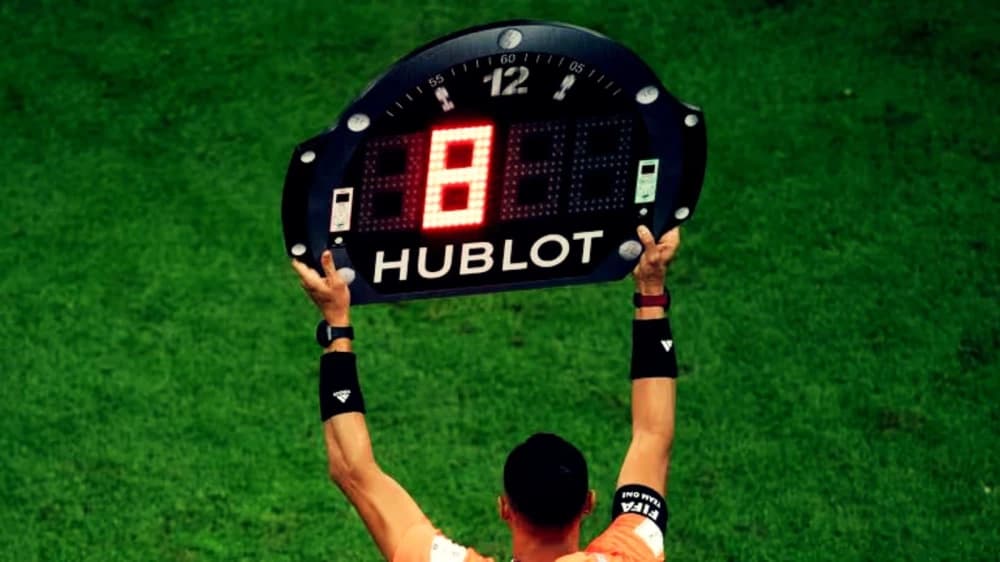Understanding Betting on Extra Time in Football

Explore the thrilling world of betting on extra time in football matches. Whether you’re a beginner or a seasoned bettor, our guide offers essential insights and strategies for successful wagering.
In the intense arena of football, matches frequently reach a critical point, captivating fans and players alike. The excitement amplifies when a game proceeds to extra time, a gripping situation commonly encountered in the knockout phases of tournaments. For those who bet, predicting whether a match will enter extra time presents a thrilling chance, but it necessitates a blend of knowledge, research, and instinct. In this blog, we will explore all you need to know about betting on matches that may lead to extra time, catering to both newcomers seeking understanding and experienced bettors seeking more profound insights.
Comprehending Extra Time in Football
Extra time refers to a 30-minute extension added to a football match when the teams are tied at the conclusion of the regular 90 minutes, usually occurring in knockout stages where a winner is necessary. This period is split into two halves of 15 minutes each, and if the score remains level, the game typically moves to a penalty shootout. Although extra time is seldom seen in league matches, it is a frequent feature in tournaments such as the FIFA World Cup, UEFA Champions League, and various domestic cup competitions.
For those placing bets, determining whether a match will go beyond the 90-minute mark relies on comprehending the specific rules of the competition and the characteristics of the teams involved. In most betting markets, the bet applies solely to the standard 90 minutes and any stoppage time. When you place a wager on a match proceeding to extra time, you are essentially forecasting that neither team will achieve victory within the regular playing period.
Essential Elements Affecting the Results of Extra Time
Wagering on extra time necessitates a thorough assessment of various elements that can determine if teams are prone to conclude regular playing time in a draw.
Team Capability and Match Circumstances
The probability of a match going into extra time increases when two evenly matched teams compete against each other. Games involving teams known for their solid defensive performances or comparable offensive skills tend to be low-scoring or end in draws. Additionally, the match's context plays a significant role—during knockout stages, teams often adopt a more cautious approach, emphasizing defense to prevent conceding critical goals.
Stages of the Tournament
Extra time is more frequently seen in the later phases of tournaments. During the quarterfinals, semifinals, or finals, teams tend to be closely matched and are often cautious to avoid taking unnecessary risks. In contrast, earlier rounds may exhibit a greater disparity in team strength, leading matches to conclude with clear outcomes in the standard 90 minutes.
Past Encounters and Their Outcomes
Analyzing the historical performance between the two teams can yield important insights. Certain teams have a pattern of drawing with particular opponents, often influenced by their respective playing styles. For example, a team that excels in midfield yet lacks attacking prowess may find it difficult to penetrate the defense of a similarly strong opponent, potentially resulting in a draw during regular time.
Recent Performance and Player Fitness
The recent performance of a team can play a crucial role in its ability to either avoid or induce extra time. Factors such as injuries, suspensions, or fatigue due to a busy schedule can hinder even a strong team when facing a lower-ranked adversary, thus raising the likelihood of a tie by the end of the regular 90 minutes.
Coaching Tactics
The strategic methods employed by coaches are vital in the context of football matches. Coaches with a defensive strategy typically direct their teams to aim for a draw during regular time, particularly when competing against more formidable teams. Grasping a coach's philosophy and past strategies in high-pressure situations can provide bettors with a competitive advantage.
Betting on Matches that May Go to Extra Time
For those new to betting, wagering on whether a match will go into extra time may appear complicated, but it becomes easier to grasp with a fundamental understanding of betting markets. Most sportsbooks provide a dedicated market for matches that are likely to enter extra time, commonly referred to as 'To Go to Extra Time' or 'Will There Be Extra Time?' The odds offered in this market are typically higher than those for standard match outcomes, reflecting the reduced likelihood of this scenario happening.
Experienced bettors frequently integrate this market with others, such as 'Both Teams to Score' or 'Under 2.5 Goals,' to formulate accumulator bets or to mitigate their risks. For example, in a match featuring two defensively robust teams with a low likelihood of scoring, wagering on a draw alongside extra time could present a well-rounded betting strategy.
Risk Management and Strategy Improvement
Wagering on matches that could lead to extra time carries a level of unpredictability, as even small incidents, such as a last-minute goal or a defensive lapse, can alter the result during regular play. For those new to betting, it's crucial to refrain from putting too much money into this type of market and instead incorporate it into a more comprehensive betting plan. Begin by investigating matches that are likely to end in draws, particularly tightly contested finals or semifinals.
Experienced bettors should concentrate on identifying value in the odds. When bookmakers misjudge the likelihood of a match going to extra time—potentially because public betting patterns heavily favor one side—astute punters can take advantage of these situations. To enhance your strategy, it's essential to utilize statistical models, keep up with team news, and conduct thorough analyses of game scenarios.
Concluding Remarks
Wagering on a football game extending into extra time is both exciting and demanding. For newcomers, it provides an opportunity to engage with the strategic elements of betting, emphasizing match dynamics and probabilities. For more experienced bettors, it allows for a deeper exploration of game analysis and the chance to take advantage of specialized betting markets.
Whether you are venturing into this market for the first time or looking to broaden your betting strategy, it's important to remember that successful betting hinges on patience, thorough research, and careful management of your bankroll. While extra time can be unpredictable, adopting the right strategy can make it an exciting and rewarding element of football betting.






